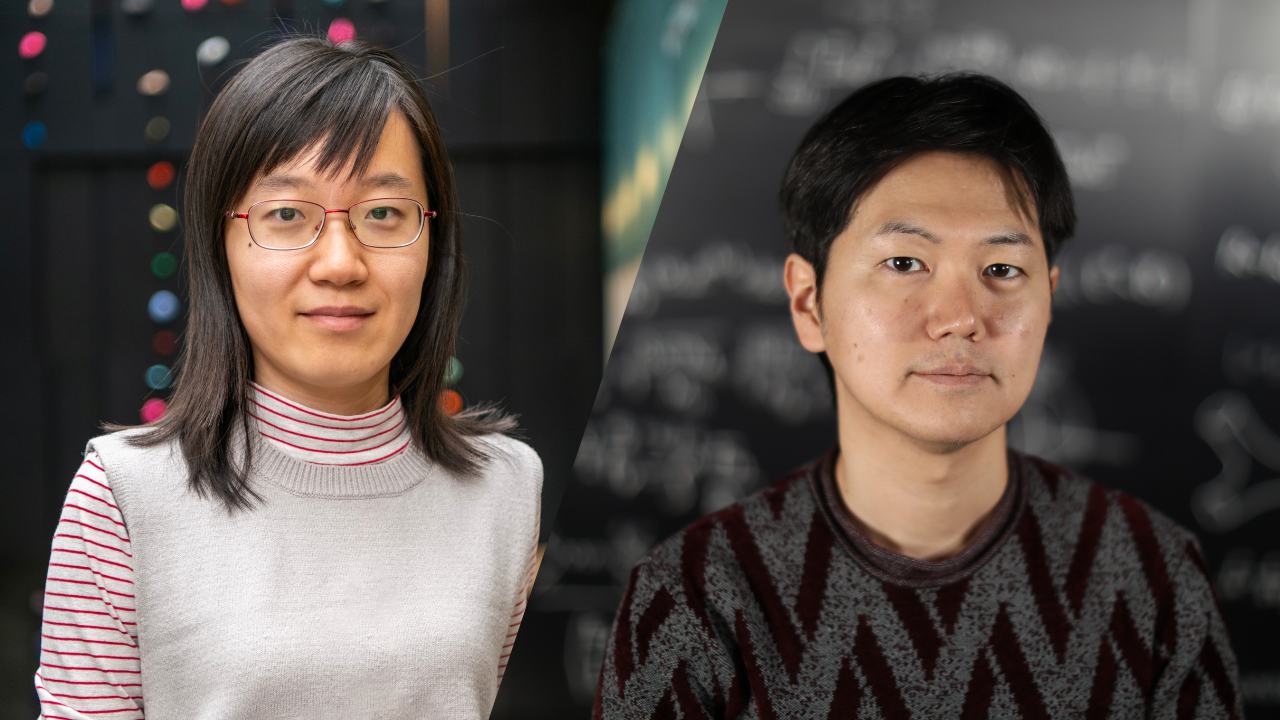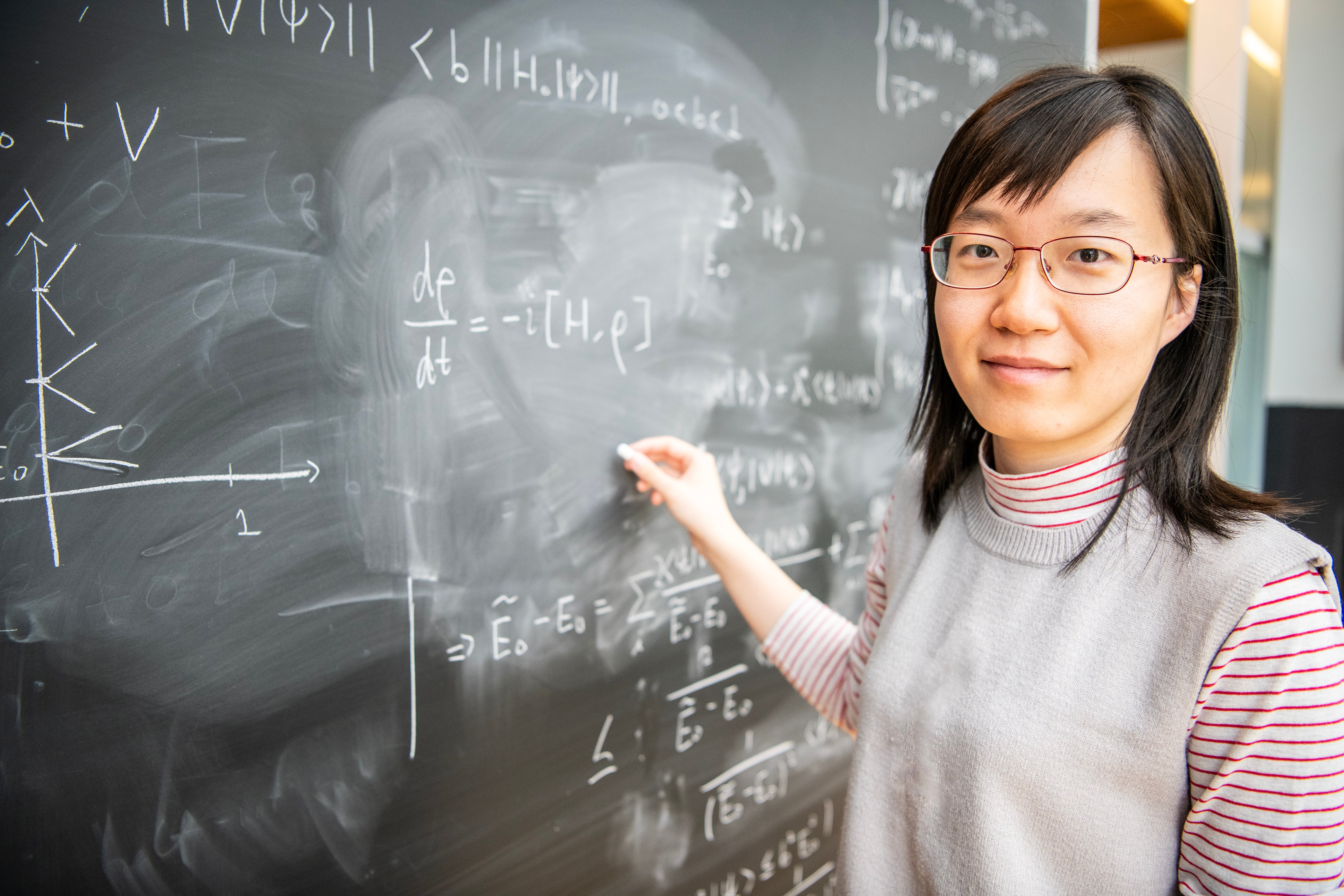Two Perimeter Institute faculty members, Sisi Zhou and Beni Yoshida, have been awarded a Collaborative Science, Technology and Innovation program (CSTIP) grant from the National Research Council of Canada (NRC)’s Applied Quantum Computing Challenge program. The grant provides $660,000 over three years to support a research project in quantum error correction (QEC) in collaboration with the NRC.
Quantum computers are expected to have transformative capabilities that will outperform traditional computers at certain tasks. At their core, they use quantum mechanical phenomena to implement quantum algorithms, which could be useful in everything from scientific simulations to cybersecurity. But current quantum computers are still in the experimental phase, and practical limitations restrict their size and quality.
One key challenge with quantum computers in their current state is “quantum noise” – unwanted disturbances in algorithms that affect quantum systems.
“Our project focuses on advancing the technology of quantum error correction, which is a key step towards building practical quantum computers and is the foundation behind the implementation of quantum algorithms and other quantum information processing tasks,” says Zhou.
Zhou and Yoshida will be collaborating with NRC researchers and co-principal investigators Dr. Meenu Kumari and Dr. Zhi Li, who are both experts in quantum noise and QEC.
The project aims to advance the development of noise characterization for fault-tolerant quantum computation, while also improving our understanding of quantum information in theoretical physics.
Zhou notes quantum noise is currently the major obstacle to scalable quantum computing. Existing quantum devices are limited by overwhelmingly strong and often correlated noise.
But to remove the noise completely, you first have to understand it, so ‘noise characterization’ is the first step necessary to realizing reliable quantum computing hardware and algorithms. From there, QEC can suppress quantum noise in quantum computers and, in principle, achieve fault-tolerant quantum computing.
“Quantum noise is present and non-negligible in all types of current quantum devices; and quantum error correction is the most effective tool to protect quantum computers from quantum noise so that the devices can operate correctly,” Zhou says.
The team aims to explore the interplay between QEC and quantum noise characterization. QEC can make noise characterization easier, for example, by reducing state preparation and measurement noise. Meanwhile, benchmarking post-QEC quantum noise can improve the performance of QEC.
As well as the practical computing applications, this research has implications for understanding the fundamentals of quantum physics too.
“I am interested in establishing fundamental connections between key concepts in fault-tolerant quantum computation and important phenomena in quantum many-body physics,” says Yoshida. “I am also interested in unveiling entanglement properties in quantum gravity through the lens of quantum error correction. These are fundamental questions that can tell us something important about practical aspects of fault-tolerant quantum computation.”
About PI
Perimeter Institute is the world’s largest research hub devoted to theoretical physics. The independent Institute was founded in 1999 to foster breakthroughs in the fundamental understanding of our universe, from the smallest particles to the entire cosmos. Research at Perimeter is motivated by the understanding that fundamental science advances human knowledge and catalyzes innovation, and that today’s theoretical physics is tomorrow’s technology. Located in the Region of Waterloo, the not-for-profit Institute is a unique public-private endeavour, including the Governments of Ontario and Canada, that enables cutting-edge research, trains the next generation of scientific pioneers, and shares the power of physics through award-winning educational outreach and public engagement.


